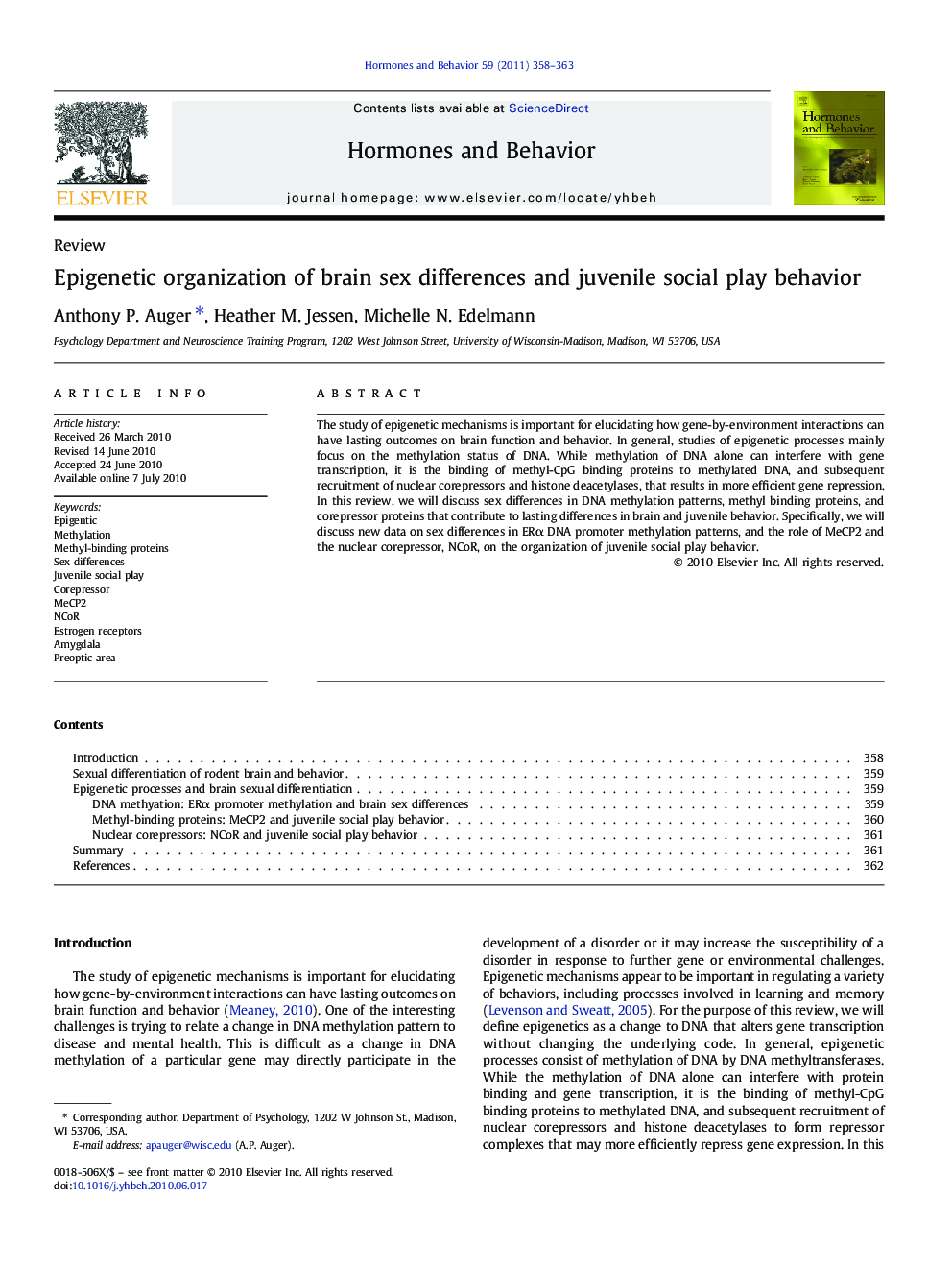| کد مقاله | کد نشریه | سال انتشار | مقاله انگلیسی | نسخه تمام متن |
|---|---|---|---|---|
| 323206 | 540526 | 2011 | 6 صفحه PDF | دانلود رایگان |

The study of epigenetic mechanisms is important for elucidating how gene-by-environment interactions can have lasting outcomes on brain function and behavior. In general, studies of epigenetic processes mainly focus on the methylation status of DNA. While methylation of DNA alone can interfere with gene transcription, it is the binding of methyl-CpG binding proteins to methylated DNA, and subsequent recruitment of nuclear corepressors and histone deacetylases, that results in more efficient gene repression. In this review, we will discuss sex differences in DNA methylation patterns, methyl binding proteins, and corepressor proteins that contribute to lasting differences in brain and juvenile behavior. Specifically, we will discuss new data on sex differences in ERα DNA promoter methylation patterns, and the role of MeCP2 and the nuclear corepressor, NCoR, on the organization of juvenile social play behavior.
Journal: Hormones and Behavior - Volume 59, Issue 3, March 2011, Pages 358–363